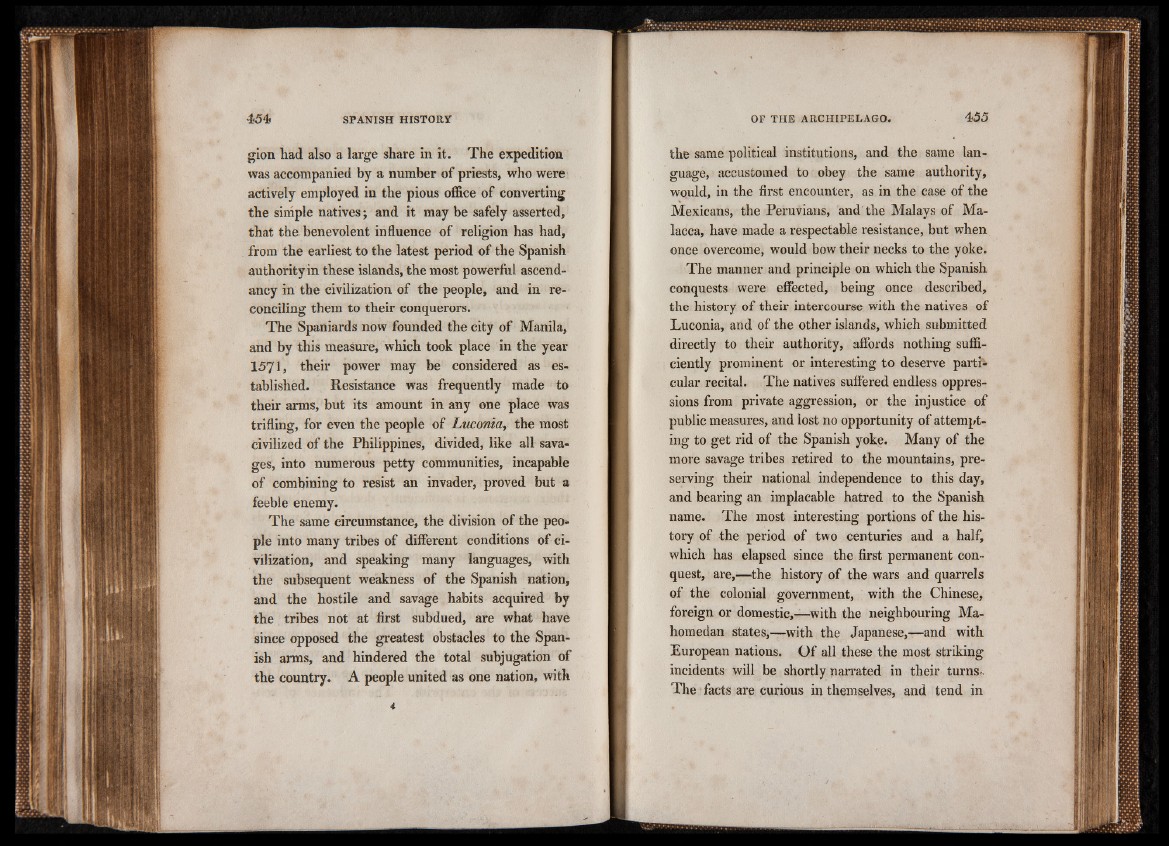
gion had also a large share in it. The expedition
was accompanied by a number of priests, who were
actively employed in the pious office of converting
the simple natives j and it may be safely asserted,
that the benevolent influence of religion has had,
from the earliest to the latest period of the Spanish
authority in these islands, the most powerful ascendancy
in the civilization of the people, and in reconciling
them to their conquerors.
The Spaniards now founded the city of Manila,
and by this measure, which took place in the year
1571, their power may be considered as established.
Resistance was frequently made to
their arms, but its amount in any one place was
trifling, for even the people of Luconia, the most
civilized of the Philippines, divided, like all savages,
into numerous petty communities, incapable
of combining to resist an invader, proved but a
feeble enemy.
The same circumstance, the division of the people
into many tribes of different conditions of civilization,
and speaking many languages, with
the subsequent weiakness of the Spanish nation,
and the hostile and savage habits acquired by
the tribes not at first subdued, are what have
since opposed the greatest obstacles to the Spanish
arms, and hindered the total subjugation of
the country. A people united as one nation, with
the same political institutions, and the same language,
accustomed to obey the same authority,
wquld, in the first encounter, as in the case of the
Mexicans, the Peruvians, and the Malays of Malacca,
have made a respectable resistance, but when
once overcome, would bow their necks to the yoke.
The manner and principle on which the Spanish
conquests were effected, being once described,
the history of their intercourse with the natives of
Luconia, and of the other islands, which submitted
directly to their authority, affords nothing sufficiently
prominent or interesting to deserve particular
recital. The natives suffered endless oppressions
from private aggression, or the injustice of
public measures, and lost no opportunity of attempting
to get rid of the Spanish yoke. Many of the
more savage tribes retired to the mountains, preserving
their national independence to this day,
and bearing an implacable hatred to the Spanish
name. The most interesting portions of the history
of the period of two centuries and a half,
which has elapsed since the first permanent conquest,
are,—the history of the wars and quarrels
of the colonial government, with the Chinese,
foreign or domestic,—with the neighbouring Ma-
homedan states,—with the Japanese,—and with
European nations. Of all these the most striking
incidents will be shortly narrated in their turns-,
The facts are curious in themselves, and tend in